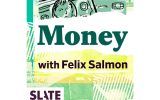The Monkey Kingdom case marked the latest in a series of scams to hit the NFT space in recent months, as demand for these digital assets continues to expand.
NFTs refer to units of data stored on a blockchain, which guarantees each digital asset to be unique and immutable. As such, NFTs can be owned and traded much like physical items in the real world.
The past year saw a boom in the NFT market, the value of which exceeded US$40 billion, according to blockchain data platform Chainalysis.
Last March, the NFT of a digital artwork created by Italian artist Andrea Bonaceto in collaboration with Sophia – the humanoid robot built by Hong Kong-based Horizon Robotics – sold at an auction for US$688,888.
But it was American artist Mike Winkelmann, known as Beeple, who got the ball rolling for the boom in NFTs that same month when his digital artwork Everydays – The First 5,000 Days sold for US$69.3 million at Christie’s.
More online criminal activity has emerged amid growing interest worldwide in non-fungible tokens.
The NFT investment frenzy, however, has also supercharged criminal activity in the market. The total value of cryptocurrencies scammed by illicit online addresses, according to Chainalysis, reached US$14 billion last year.
For all of the security and transparency features touted by proponents of blockchain, the technology behind digital currencies like bitcoin, NFT projects are not immune to phishing links and outright fraud.
While interest around NFTs has…













